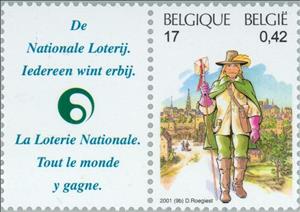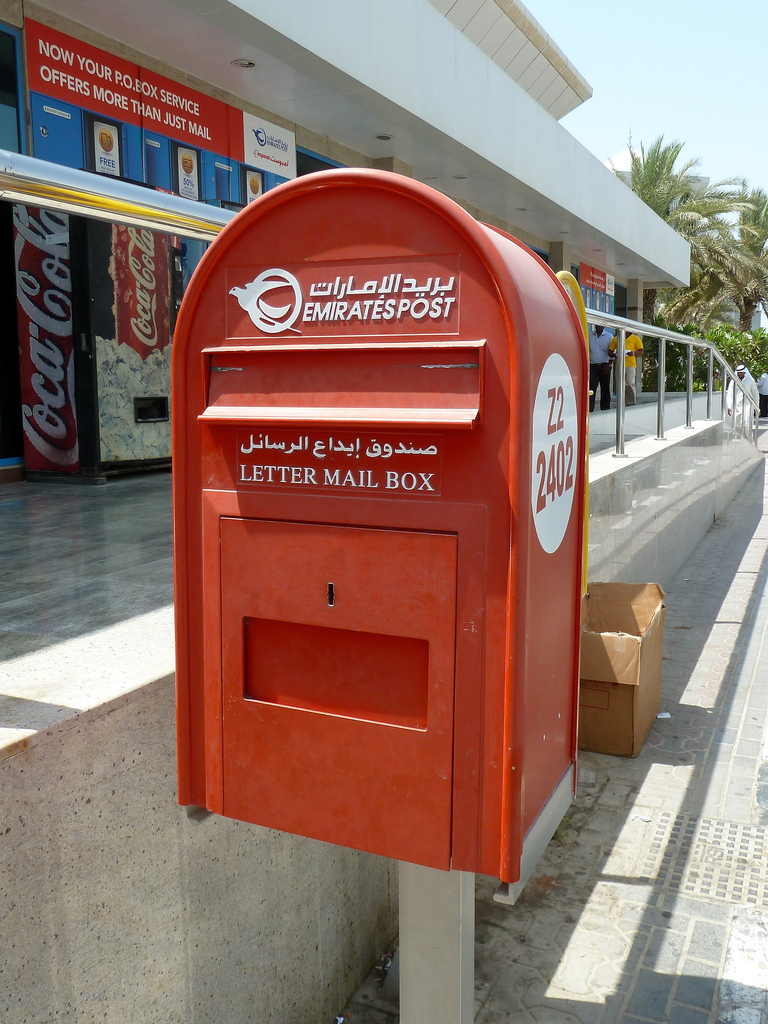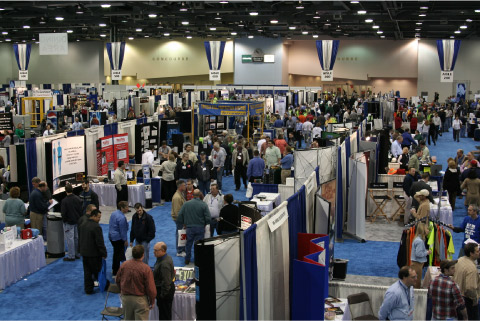Se-tenant: Postman 17th Century + tab National Loterie (Belgium 2001)
Postman 17th Century + tab National Loterie (Belgium 2001)
01 January (Belgium ) within release Int. Stampexhibition BELGICA goes into circulation Se-tenant Postman 17th Century + tab National Loterie face value 17 Belgian franc
| Se-tenant Postman 17th Century + tab National Loterie in catalogues | |
|---|---|
| Michel: | Mi:BE 3047Zf |
| Belgium: | Bel:BE 2997 |
Se-tenant is square format.
Also in the issue Int. Stampexhibition BELGICA:
- Se-tenant - Postman 16th Century + tab Net Future face value 17;
- Se-tenant - Postman 17th Century + tab National Loterie face value 17;
- Se-tenant - Postman 18th Century + tab Verzekeringen van de Post - Assur face value 17;
- Se-tenant - Postman 19th Century + tab Bank van de Post - Banque de la P face value 17;
- Se-tenant - Postman 20th Century + tab Vincindo face value 17;
- Stamp - Int. Stampexhibition BELGICA face value 150;
Se-tenant Postman 17th Century + tab National Loterie it reflects the thematic directions:
The mail or post is a system for physically transporting documents and other small packages; or, the postcards, letters, and parcels themselves. A postal service can be private or public, though many governments place restrictions on private systems. Since the mid-19th century national postal systems have generally been established as government monopolies with a fee on the article prepaid. Proof of payment is often in the form of adhesive postage stamps, but postage meters are also used for bulk mailing. Modern private postal systems are typically distinguished from national postal agencies by the names "courier" or "delivery service". Postal authorities often have functions other than transporting letters. In some countries, a postal, telegraph and telephone (PTT) service oversees the postal system, in addition to telephone and telegraph systems. Some countries' postal systems allow for savings accounts and handle applications for passports.
An exposition, in the most general sense, is an organized presentation and display of a selection of items. In practice, exhibitions usually occur within museums, galleries and exhibition halls, and World's fairs. Exhibitions can include many things such as art in both major museums and smaller galleries, interpretive exhibitions, natural history museums and history museums, and also varieties such as more commercially focused exhibitions and trade fairs.
Philately (/fɪˈlætəli/; fih-LAT-ə-lee) is the study of postage stamps and postal history. It also refers to the collection and appreciation of stamps and other philatelic products.While closely associated with stamp collecting and the study of postage, it is possible to be a philatelist without owning any stamps. For instance, the stamps being studied may be very rare or reside only in museums.



